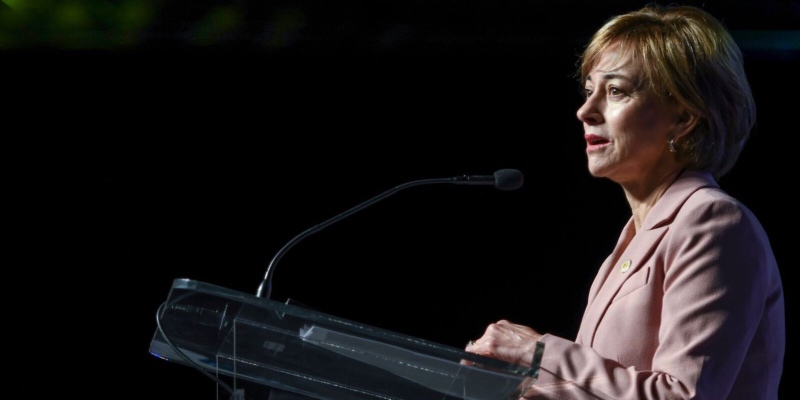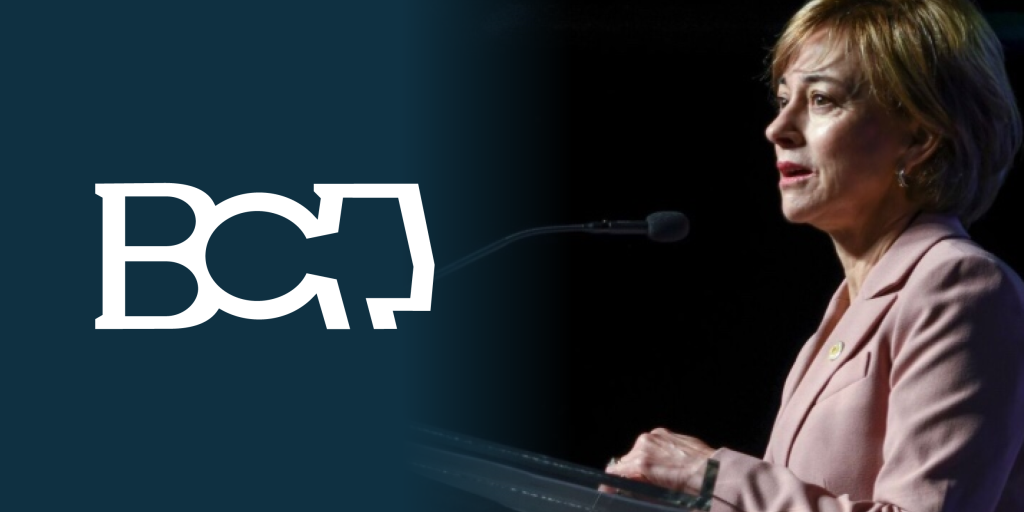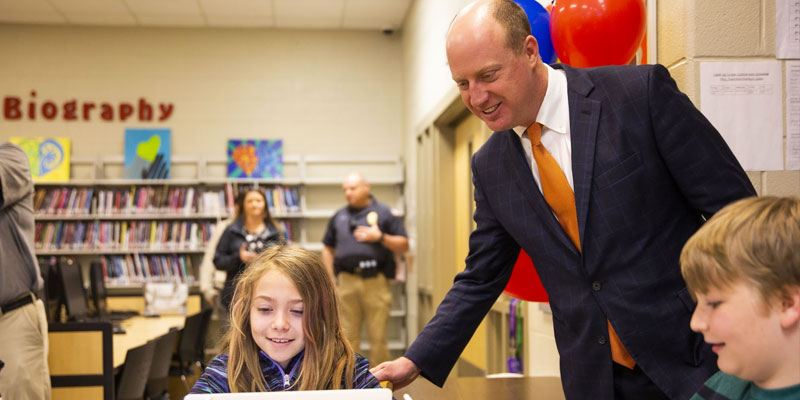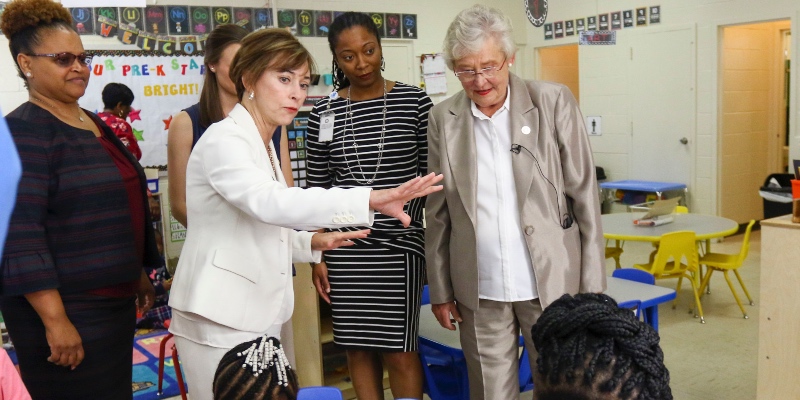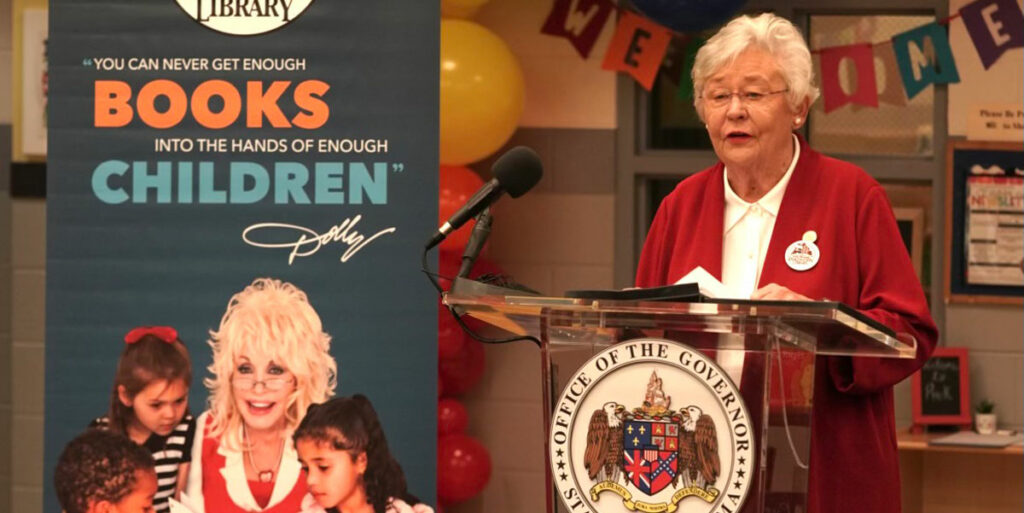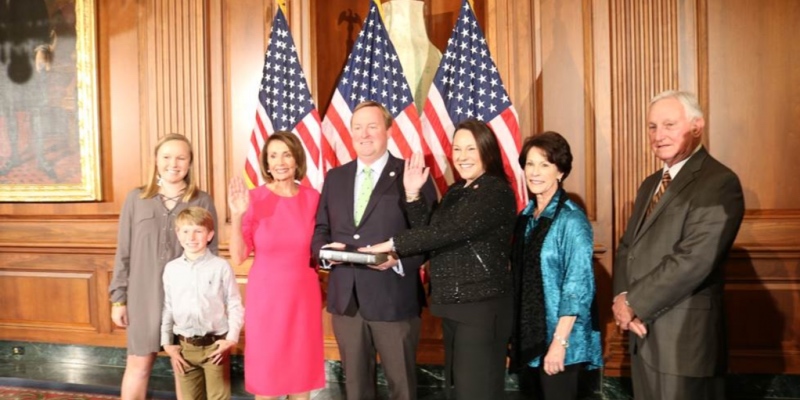Kicking off the 2019 Alabama Early Childhood Education Conference in Mobile on Thursday, Department of Early Childhood Education Secretary Jeana Ross spoke about the evolution of early childhood education in the Yellowhammer State, saying that “we’re getting closer to our goal of comprehensive early education.”
Leading into Governor Kay Ivey’s speech to the record crowd of approximately 3,000 Alabama education professionals, Ross outlined how far early childhood education has come in the state since the turn of the century.
“I think back to the first conference we had in Montgomery. I think we probably had 175 classrooms then, and as a director of one of those classrooms, we were there, and we had a wonderful time,” Ross reminisced. “But, never ever, did I ever dream that we would grow to this. This is amazing.”
After some well-deserved praise for the men and women who work in the field day-in, day-out, Ross detailed just how significant the growth has been.
“Last year, Governor Ivey and the Alabama Legislature worked together to expand the state’s First Class Pre-K program. It was the sixth year in a row that the state’s economic growth has enabled us to add more classrooms. In fact, due to Governor Ivey’s leadership, the legislature appropriated the largest funding increase in the history of our young program, $18.5 million,” Ross advised.
She continued, “As a result, for the 2018 – 19 school year, we now have more than 1,000 First Class Pre-K classrooms across the state. That means there’s more than 18,000 children in these classrooms whose quality is unmatched across the country.”
“It’s a far cry from where we were a few years ago,” Ross said.
An exciting new study released last month concluded that students who participate in the First Class Pre-K program are more likely to be proficient in math and reading. Researchers also found that their work indicated “no evidence of fade out of the benefits of First Class Pre-K over time.”
But while the state’s pre-k program has grown, the department has not substituted quality for quantity.
“We will never compromise on quality,” Ross emphasized.
Moving forward, leaders still hope to be able to offer the First Class Pre-K program to every Alabama family that voluntarily wants their child to attend.
In 2012, the Alabama School Readiness Alliance’s (ASRA) business-led Pre-K Task Force launched a ten-year campaign to advocate for full funding for the First Class Pre-K program through incremental state funding increases. ASRA has estimated that the state would need to appropriate a total level of funding of $144 million to give every Alabama family the opportunity to enroll their four-year-old in a First Class Pre-K program voluntarily.
While growth of programming is important, Ross also stressed the reach of early childhood education and the partnerships involved.
“The partnerships, the coordination we have across the state, are so important,” Ross explained. “We know a child’s learning experiences don’t start at four years old. They start before birth.”
“It is so important that we have our home visitors, our childcare providers, and all those professionals that work with children birth-to-age-eight here today. We must continue to have a strong continuum of how we serve children, the approaches we use, and best practices so that we can help each and every child in the state of Alabama reach their greatest potential,” she outlined.
Ross continued, “The number of First Class Pre-K classrooms and teachers are only a part of the reason why our conference has a new look. The Department of Early Childhood Education was established in 2000 to enable the governor to effectively and efficiently coordinate the efforts and programs to serve all young children throughout the state. And, as we all know, a child’s life does not begin at age four, and neither does it end in kindergarten.”
Ross named relationships and partnerships through home visiting programs, the Department of Human Resources, childcare, the Department of Mental Health, their early childhood mental health coordinator and the First 5 Alabama initiative as key examples.
Then, there is the State Department of Education as well, with Ross praising them as “a tremendous partner.”
“We meet with them once a month and see how we can create that transition from those early years into school. So that that child not only is ready for school, but they’re going into a learning environment where they’re able to learn and have experiences and educational approaches that will best suit them to be successful and achieve their greatest potential,” Ross remarked.
All of the impressive growth and hand-in-hand collaboration has a purpose as part of an overarching vision and plan.
“[W]e’re getting closer to our goal of comprehensive early education. Just imagine what will be possible for our children in the state when we get there,” Ross said.
While Alabama strives for constant improvement in early childhood education, the nation looks to the Yellowhammer State as a role model for its commitment to excellence.
“We’ve actually had the governor from Montana come visit us and talk to us about early childhood,” Ross advised. “In just the last few weeks, we’ve had an extensive phone call with Hawaii and Nevada. Tennessee came to visit.”
She told the assembled educators, “All of them want to know what Alabama is doing and it’s because of you, your reputation, and your work that this is being recognized.”
Sean Ross is a staff writer for Yellowhammer News. You can follow him on Twitter @sean_yhn




